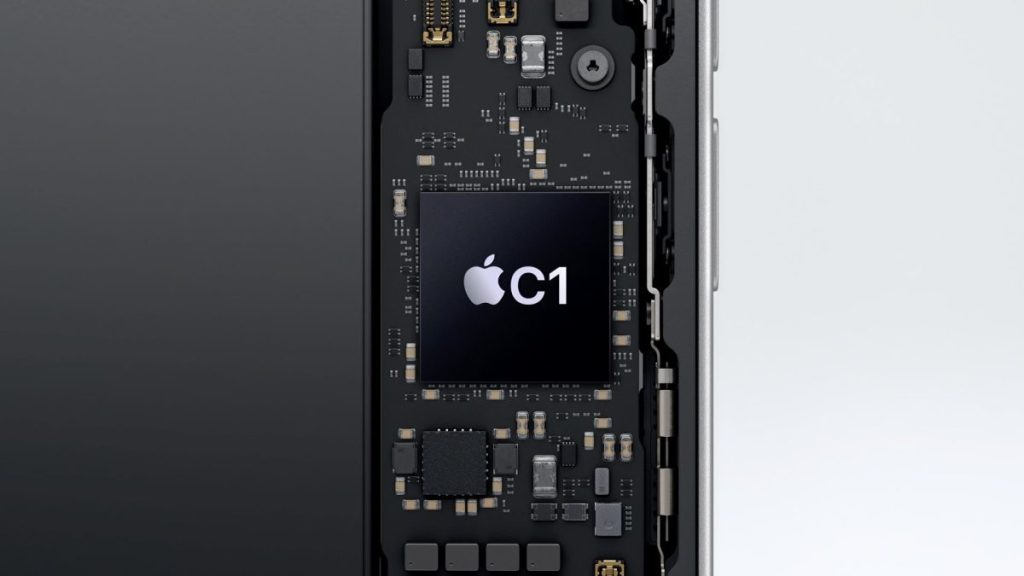As the tech world eagerly watches the evolution of smartphone connectivity, a significant shift is poised to take place by 2027. Apple is on the cusp of discontinuing its long-standing reliance on Qualcomm for modems with the anticipated expiration of their partnership. This transition follows the successful debut of Apple’s custom C1 modem, designed to elevate its devices beyond Qualcomm’s offerings. Despite this impending breakup, Qualcomm’s leadership emphasizes a commitment to diversifying its business strategies to weather the potential financial storm.
Apple’s Path to Independence
Apple has set a clear trajectory towards developing its custom modem technology, a move that could significantly impact Qualcomm’s revenue stream. After the introduction of the iPhone 16e, which is powered by Apple’s own C1 modem, speculation mounts that future devices will also fully integrate Apple’s silicon, thereby all but eliminating Qualcomm’s presence in Apple’s ecosystem. The stakes are high, as Qualcomm currently earns between $5.7 billion and $5.9 billion annually from its modem sales to Apple, accounting for a substantial portion of its revenue portfolio.
According to industry analysts, the impending transition signifies a pivotal moment in the competitive landscape of mobile technology. As Apple’s contract with Qualcomm approaches its end in March 2027, analysts anticipate that the resulting absence of Qualcomm’s modems in Apple’s products will immediately lower Qualcomm’s market share in the smartphone sector. In fact, Qualcomm predicts that the percentage of iPhones featuring its modems will plummet from a current estimate of 70% to just 20% in the following year, ultimately reaching zero by 2027. This stark forecast underlines the urgency for Qualcomm to pivot its business strategy.
Qualcomm’s Multidimensional Strategy
In a recent conversation on Yahoo Finance’s Opening Bid podcast, Qualcomm’s CEO, Cristiano Amon, addressed the company’s future without Apple. Amon noted that Qualcomm is actively seeking opportunities beyond the lucrative Apple business, suggesting a strategic shift that reflects a broader interest in sectors like automotive, Internet of Things (IoT), and AI-powered technologies. He stated:
“That’s our contract, you know, and if we don’t get a new contract, that’s what it is. And there’s so much drama and association about the Apple relationship, which I think is not warranted, to be honest.”
This perspective highlights Qualcomm’s intent to foster innovation across various platforms, which may help mitigate the anticipated loss from the Apple breakup. Indeed, Qualcomm aims to explore cutting-edge technologies that align with emerging trends in AI and machine learning, putting it in competition with companies such as Nvidia, which has been making strides in high-performance GPUs.
Future Innovations and Market Impact
As Apple forges ahead with its custom modem development, it is reportedly working on the next-generation C2 modem, designed to surpass the capabilities of the C1 modem, which is already proving effective in real-world applications. This commitment to innovation allows Apple to create a more integrated and optimized experience across its devices, including upcoming models like the ultra-thin iPhone 17 Air, which is set for release in September 2023.
Apple’s investments in self-sufficient modem technology not only position it favorably in the market, but they may also set a precedent for other tech companies aiming to reduce reliance on third-party hardware. As of this year, more than 200 million iPhones are expected to be sold globally, making the market consequences of this transition particularly noteworthy. As Apple replaces Qualcomm’s modems, the ripple effects could be felt across the smartphone industry, with potential challenges for other modem suppliers aiming to fill the void.
Community and Industry Reaction
The reaction from the tech community has been mixed. Some analysts view Apple’s move as a bold step towards greater control over its hardware ecosystem. This diversification is applauded as a means of ensuring compatibility and performance optimization. Others, however, caution against the risks associated with creating proprietary technology, which may lead to unforeseen challenges, especially in terms of production scale and supply chain logistics.
As the industry gears up for this considerable shift, Qualcomm’s plans to adapt highlight the resilience of major technology companies. With their sights set on new markets and opportunities, Qualcomm’s long-term success will depend on how effectively it can pivot away from Apple and leverage its innovative capabilities in other sectors.
Quick Reference Table
| Item | Details |
|---|---|
| Current Qualcomm Revenue from Apple | $5.7 – $5.9 billion |
| Expected iPhone Share of Qualcomm Modems | 70% (2023), 20% (2024), 0% (2027) |
| Upcoming Apple Modem | C2 Modem |
| Next Apple Product Launch | iPhone 17 Air (September 2023) |
| New Markets for Qualcomm | Automotive, IoT, AI technologies |

